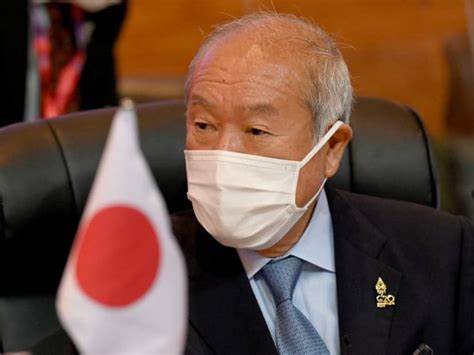 Japan welcomed the coordinated debt restructuring program for Sri Lanka.
Japan welcomed the coordinated debt restructuring program for Sri Lanka.
Finance Minister Shunichi Suzuki acknowledged the higher risks faced by low- and middle-income nations concerning debt vulnerabilities amid the COVID-19 pandemic and Russia’s invasion of Ukraine.
He welcomed the recent launch of a coordinated debt restructuring program for the bilateral creditors of crisis-hit Sri Lanka, with Japan, India and France announcing the start of the process in April. China is also a major creditor.
“It is essential to improve debt data transparency and accuracy to prevent future debt crises,” the Minister added.
Meanwhile, Japan will contribute $25 million to help countries in the Asia-Pacific region address the issue of climate change via a new financing mechanism by the Asian Development Bank.
The funds will go to the Innovative Finance Facility for Climate in Asia and the Pacific, through which the ADB plans to extend loans of up to $15 billion for incentivizing action on the issue in a region that is vulnerable to climate-related disasters.
“In recent years, the region has frequently suffered damage from extreme weather events and large-scale natural disasters caused by climate change. Therefore, a balanced approach toward adaptation, in addition to mitigation measures, is also essential,” Suzuki said at a meeting of the ADB’s board of governors.
Suzuki also emphasized the need to achieve “ambitious” net zero emissions targets while preventing or managing trade-offs between climate action and other important development objectives in areas such as health and education.
Besides Japan, Denmark, South Korea, Sweden, Britain and the United States are the initial partners of the ADB’s new financing scheme.
More than 40 percent of all climate-related disasters that have occurred in this century took place in the Asia-Pacific region, according to the ADB, which has set a goal of providing $100 billion in climate financing to developing member states between 2019 and 2030.
Climate change is among the key agendas for Japan, which holds the rotating presidency of the Group of Seven. Other areas considered important include issues related to debt and the provision of universal health coverage. (Colombo Gazette / Japan Today)


Post a Comment